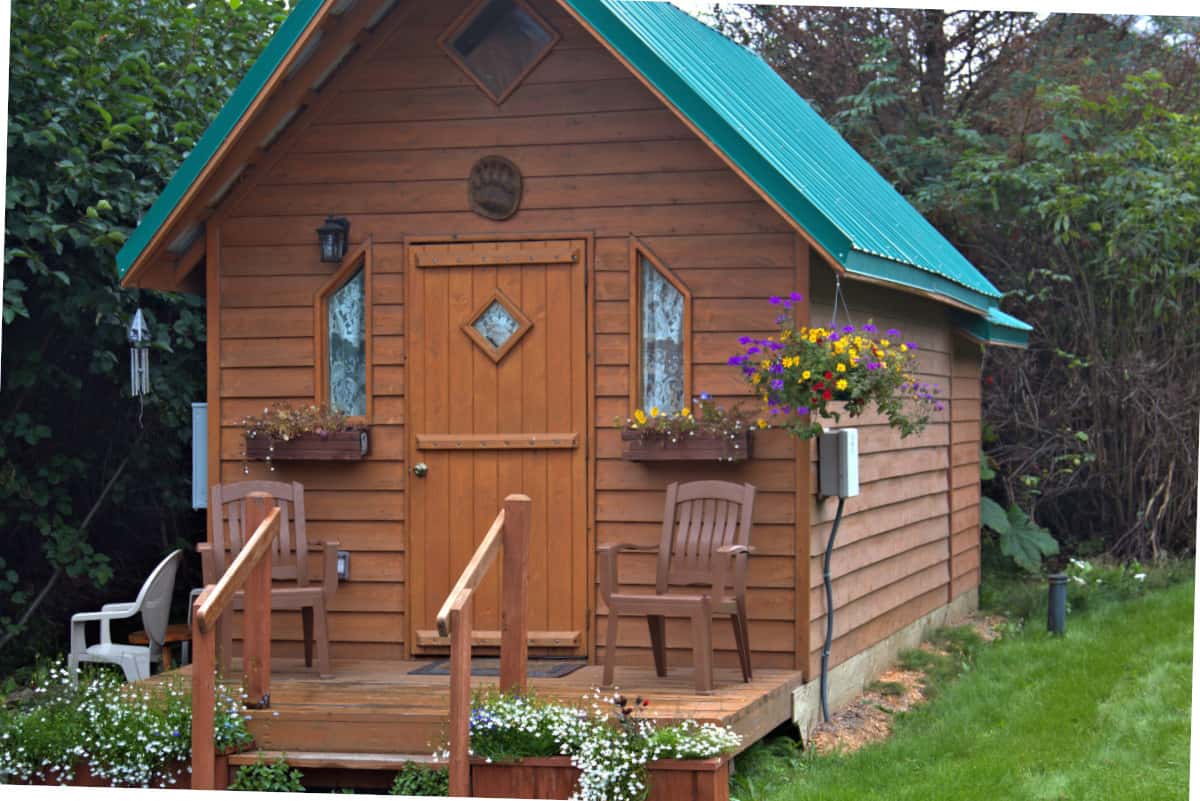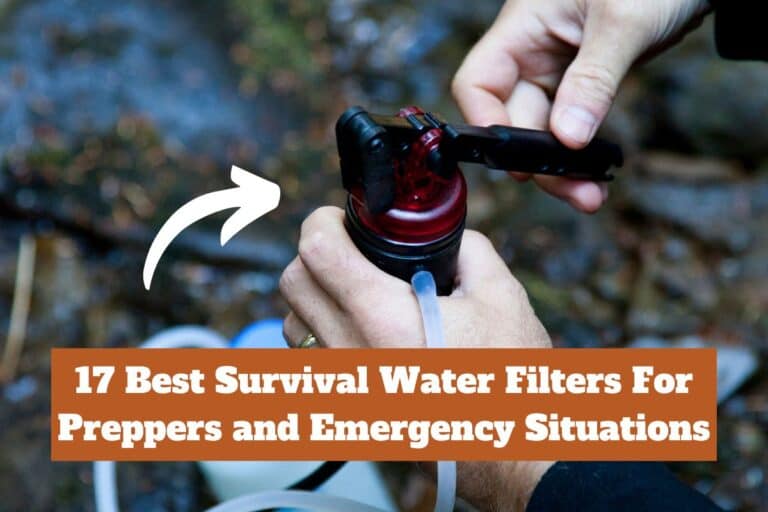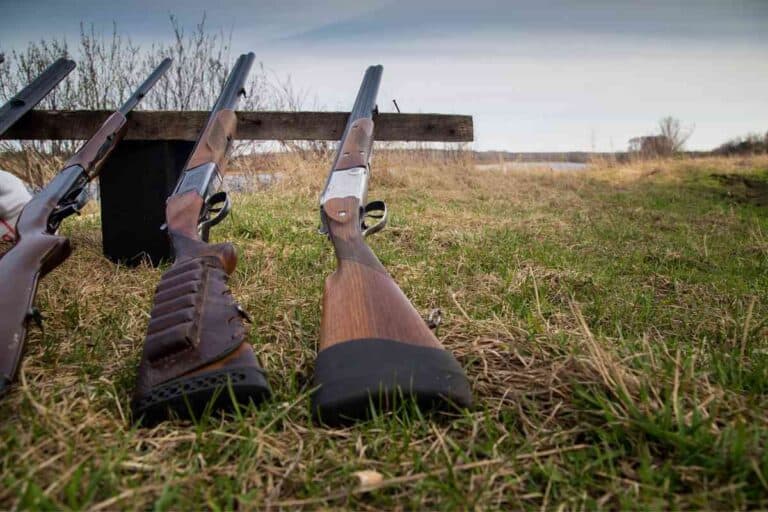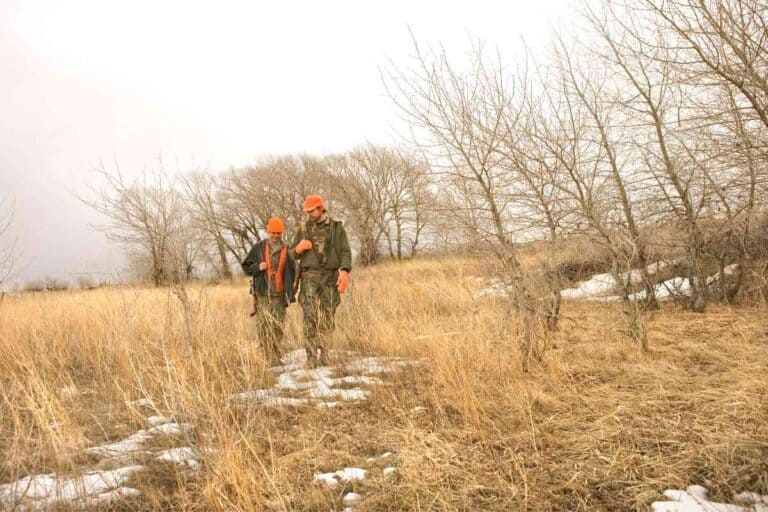Where Can I Live Off Grid in Canada? (Answered!)
The local climate in Canada makes living off-grid a challenge. It gets very cold and most areas are not good for farming crops and animals. However, there are still a lot of places where you can live off-grid, and several Inuit communities living off-grid in the country today.
Where Can I Live Off Grid in Canada?
You can live off-grid in Prince Edward Island, Nova Scotia, Quebec, New Brunswick, and Manitoba. These provinces offer the best farming areas and relatively mild climates for off-grid living. All other provinces also have a few areas that are ideal for off-grid living, and it is legal wherever you go.
The laws in Canadian provinces make it easier for people to live off-grid. However, the climate and lack of arable farming land in most parts of the country make it a challenge for people to do that. When choosing the best place to live off-grid, consider the water table, planning permission, wildlife threat, soil quality, natural resources, and water supply.
You can try off-grid living where you are if the conditions allow. Read on to learn more about off-grid living in Canada.
Is It Legal to Live Off Grid in Canada?
It is legal to live off-grid in Canada. You are allowed to connect your home to solar or wind power, grow crops and rear animals, and lead an off-grid lifestyle. Even then, you still need to follow the national building codes, file your taxes, and own the land you build and farm on.
Living off-grid means that your home is not connected to the public power grid. You can grow your crops and keep livestock for a self-sustained farm. All these activities are legal.
Even though it is not illegal to live off-grid in Canada, you still have to comply with building codes. For instance, all homes need to have smoke detectors and sufficient ventilation. You can power your smoke detectors with battery or get a solar collector to keep the system going.
Check out other building codes and regulations that you have to follow to live off-grid. Again, living off-grid in Canada does not make you a completely free man, and you are never far from the country’s laws. This means that even if you grow your own food and keep livestock, you will still need to pay taxes.
For starters, all citizens have to pay income taxes. Even if you feel like you are completely free from the government, the taxman will still follow you wherever you go for taxes.
If you build your home, you will need to pay your taxes. These taxes are based on the size of your home and geographical location among other factors. Research the local laws and understand what is needed of you when you set up your own off-grid lifestyle.
Where Can I Live in Canada for Free?
You cannot live in Canada for free – Canada does not have squatter rights. When you decide to live off-grid, you will need to own the land on which you build your home. You cannot build your home in any random location or park your RV anywhere just because there is no one occupying it.
All land in Canada has an owner, and you will face legal repercussions if you build on someone’s land. The legal issues will be bigger if you are not a resident of Canada.
For some people, living off-grid means living in the woods with no electricity, no internet, no TV, and no car. Even if you want to go this route, you will still need to own the land you build your home or forage for food.
If you want to have services, such as satellite TV, internet, phone, and others, you will need a street address for the services to be provided. This means that you have to own land, which comes at a cost. The government will not allow land that already has an address to be subdivided.
You can cut down the cost of living off-grid by living in a community. There are such communities in almost all provinces. In Ontario, for instance, the Boreal Forest Medieval Villages are affordable off-grid communities where you can experience adventure and live a simple off-grid life with people who share your ideas.
How Much Does It Cost to Live Off the Grid in Canada?
You will need about $50,000 to go off-grid. You need to start by acquiring farming land, which can be about $4,000 in rural Canada. You will need about four acres to do serious farming for you and your family – that is about $16,000.
From there, you need to set up a home, which can cost about $10,000. You can build a home based on your financial muscles as some off-grid homes can be as expensive as $100,000.

Once you have the home, you need to set up a power source, such as solar, generator, or wind power. This will cost you about $10,000. It is advisable that you get a generator besides the solar panel as the weather can be unforgiving in most parts of Canada.
You will need a source of water. You can live near a stream or harvest rainwater. As such, you will need a water tank to hold water and piping to supply the water throughout your home. Once your home is all set and ready to occupy, you will need some money to start farming; set up a chicken coop, set livestock shed, and set some money aside for gardening.
Some often forgotten costs include off-grid home insurance, repair costs for the generator, propane and oil for the off-grid home, the cost of wood, and the shipping costs when you need to send or receive a parcel to the off-grid location.
Again, you can cut down the costs if you decide to live in a community. With a community, you will have access to affordable land and get help from community members until you are all set. Building homes in an organized community also reduces the taxes that you need to pay.
Can You Legally Live Off Grid in Ontario?
You can legally live off-grid in Ontario. The main challenge with living off-grid in the province is that the cost of land is very high and so is the cost of living. You can find more affordable land in the northern areas of the province, but the climate in the north is fairly cold most days of the year.
You can still live off the grid if you can afford land. Ontario falls in the center of the country and gives you access to Hudson Baty, Lake Superior, Lake Ontario, Lake Erie, Lake Huron, and several other great areas to farm.
Most average people looking to live off-grid may not have $200,000 to set up an off-grid home. Once you have the land, you can farm your own crops and keep livestock to bring down the cost of living.
If you want to live off the grid partially, you can do it in Ontario. Power your home with Solar, harvest your water, and then you can buy food from farmers with huge chunks of land.
Closing Thoughts
There are areas in Canada where people are forced to live off-grid. People in Yukon, Nunavut, Northwest Territories, and Newfoundland and Labrador. The people here live off-grid because of the weather.
People live off the grid not because the provinces are the most ideal for off-grid living, but because they do not have an option. They are not ideal places for farming and people live in small towns and villages. They might be the cheapest to live on off-grid, but they will present several challenges.
When searching for the best place to live off-grid, pick the best place affordable. Consider that you will need to farm, get access to water, and get access to at least a hospital.






![Can Microinverters Be Used Off Grid? [Answered!]](https://freedomresidence.com/wp-content/uploads/2022/05/Can-Microinverters-Be-Used-Off-Grid-768x512.jpg)